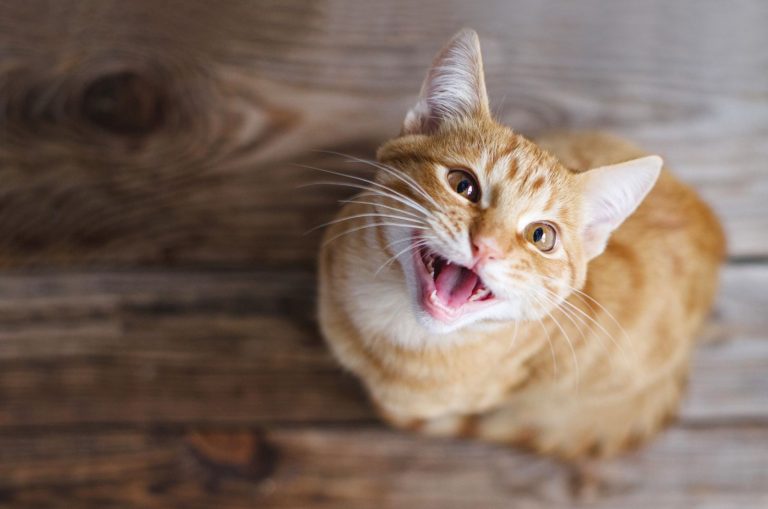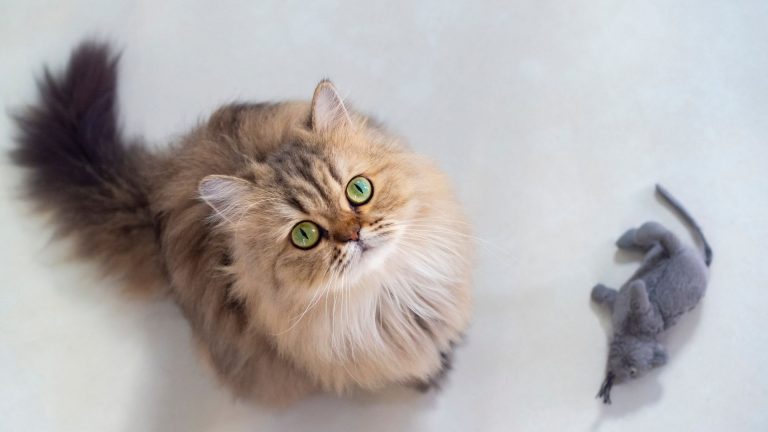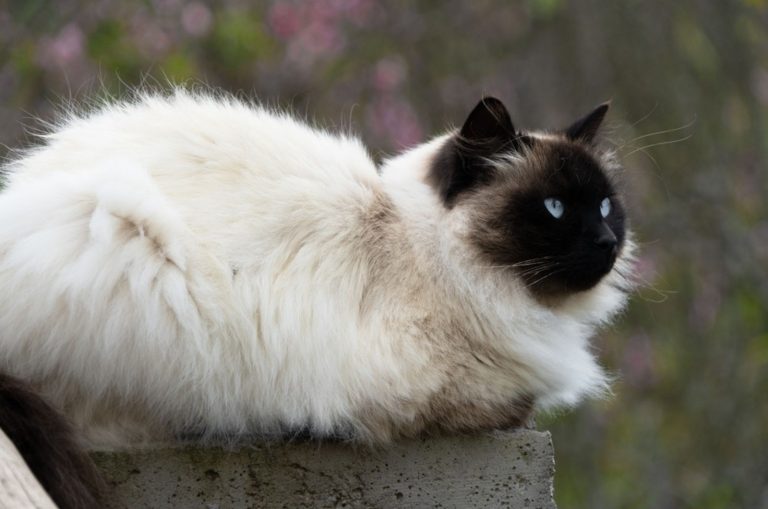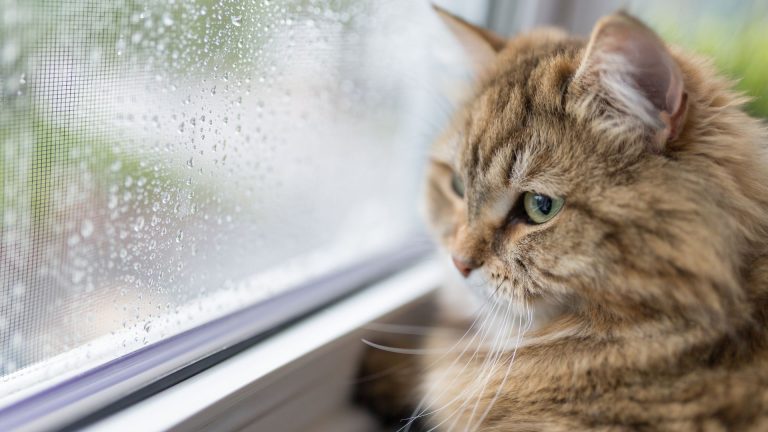Why Is My Cat Leaving Blood Drops Behind? Explanation Below
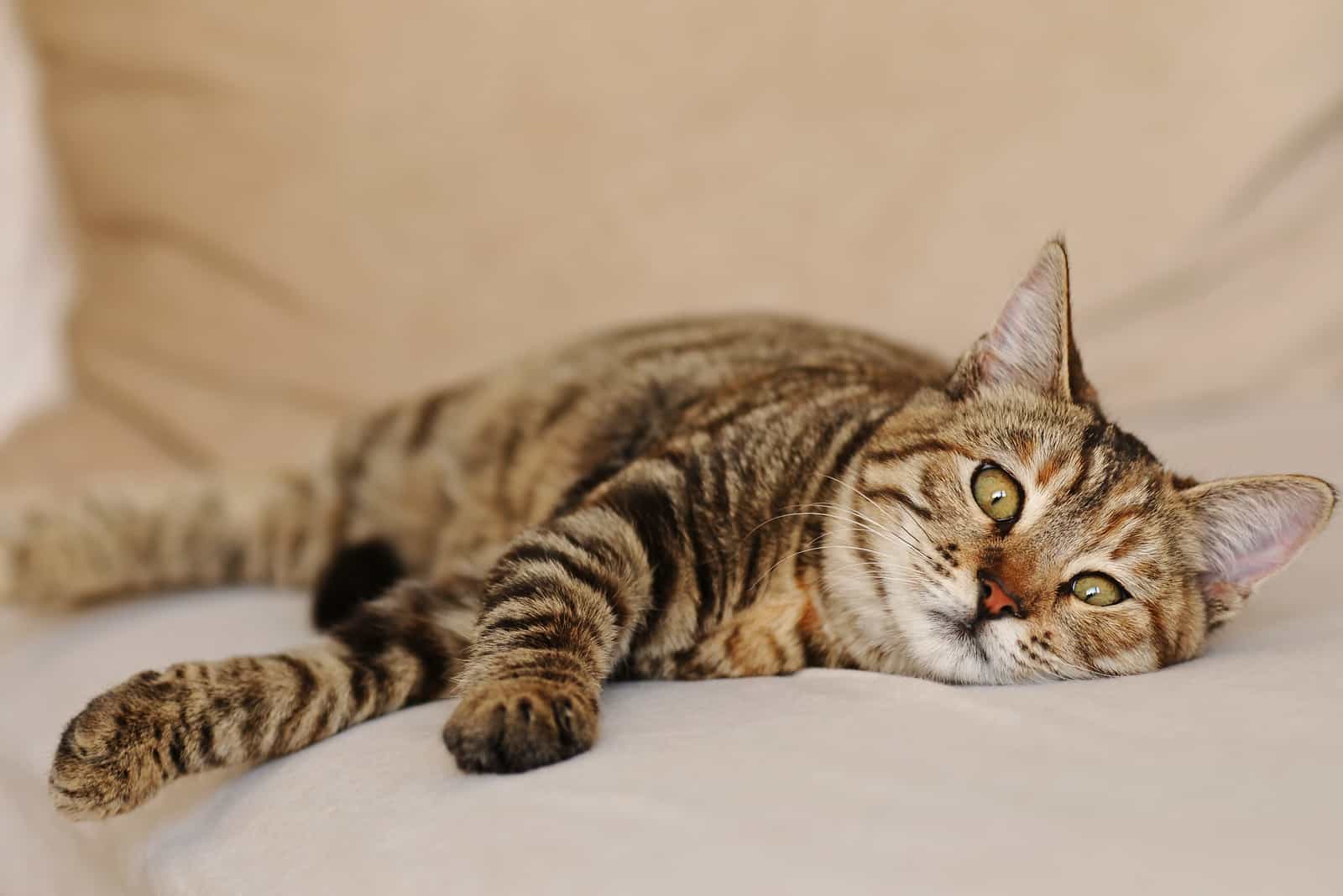
Pet parents put their pet’s health before all else. So it is not surprising that seeing spots of blood would worry you, especially if you notice your cat leaving blood drops.
Cats are known to be very good at concealing their pain so sometimes it is not obvious that they have a health problem until there are visible signs such as bleeding.
There are a few different reasons why a cat might be leaving blood drops behind.
Perhaps your cat has sustained an injury and has a wound or a scab that’s been picked at, or it might be bleeding from its nose, mouth, ears, or rectum.
You might have noticed the blood in your cat’s stool or urine. There are several underlying illnesses that may be associated with these different reasons for bleeding.
As a cat lover, and as a cat owner, it is important that you learn about health issues that might affect your cat at some point in its life.
Sometimes the explanation for why is your cat leaving blood drops around will be benign, but sometimes it can be connected to an underlying disease that may be quite harmful to your cat’s health.
Continue reading to learn more about these different issues associated with a cat’s bleeding.
Everything You Need To Know About Your Cat Leaving Blood Drops
There are many different reasons why a cat may leave blood drops behind. Cats can leave tiny blood spots in their litter box, from their poop or their urine.
Cats can also bleed from their ears, nose, or mouths, or if they have a wound somewhere. They may pick at scabs and make them bleed.
Blood From A Cat’s Anus
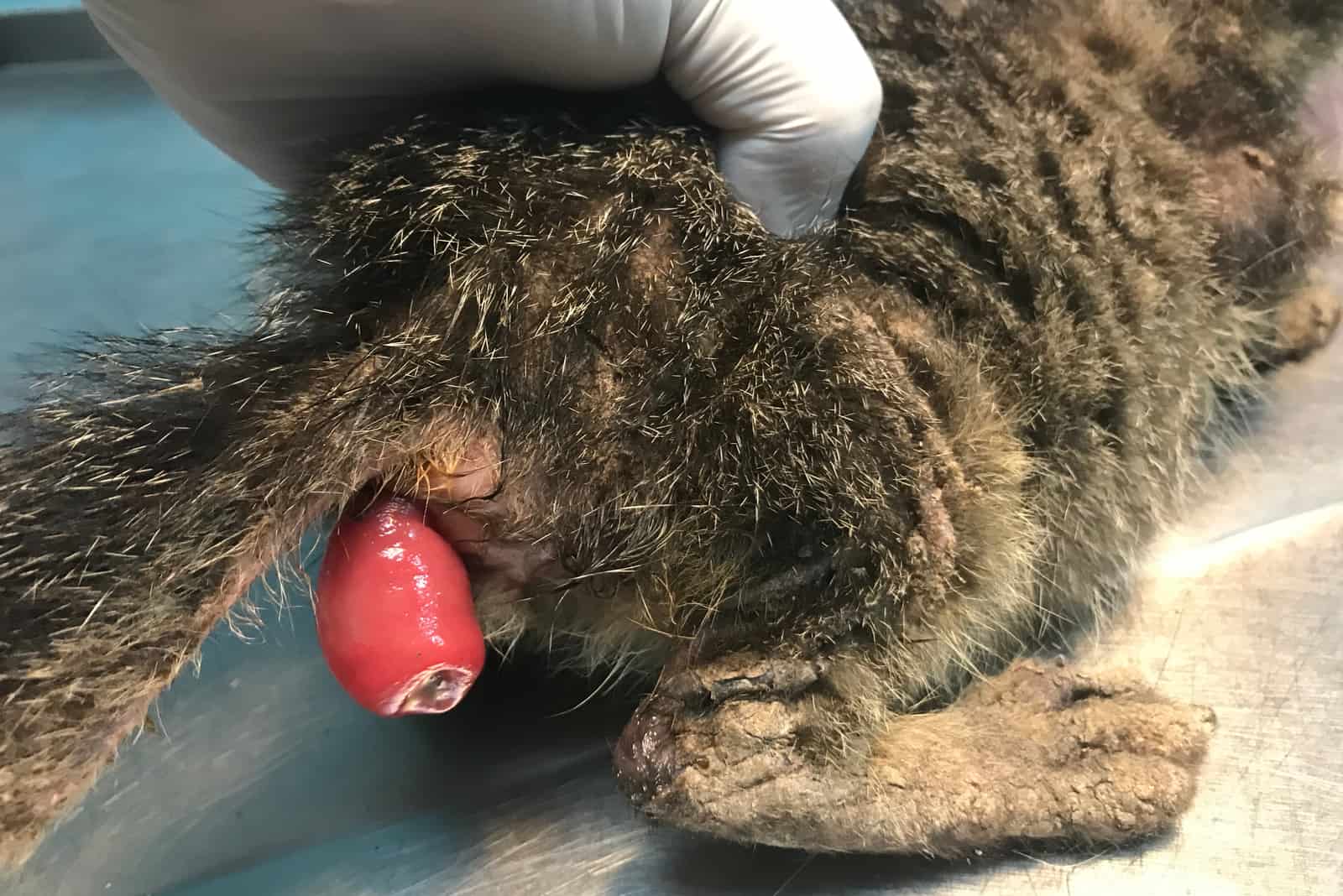
When anal bleeding occurs, it generally indicates a significant condition, and you should take your cat to the veterinarian urgently.
Polyps or tumors of the colon or the anus, severe constipation, cancers, worms, allergies, abscesses or infections, stress, toxins, and even some forms of poisoning are all possible causes for anal bleeding in cats.
If you notice blood in your cat’s feces, it will definitely be concerning. However, many of the causes are curable. Blood in feces can be either fresh or digested.
Fresh red blood will be bright red in color, and there may be streaks on the exterior of the cat’s poop or drops of blood coming out from the anus.
Digested blood will be darker in color and it will usually cause the entire poop to be black or tar-like.
Fresh blood in poop normally indicates a problem in the bottom section of the cat’s bowels, whereas digested blood usually indicates bleeding further up inside the intestines (such as the stomach or the small intestines).
If you find blood in your cat’s poop, call your vet immediately, especially if your cat has any other indicators that they may be sick.
Blood In Cat’s Urine
Urine with blood in it has a reddish-brown, pink, or red tint and this can suggest diseases such as a UTI (urinary tract infection), kidney disease, toxin exposure, or bleeding problems.
Urine in the blood, albeit uncommon, may suggest the existence of bladder cancer in cats. If you notice traces of blood in your cat’s pee, you should call your vet immediately.
If your cat is peeing and you spot blood in the urine, you might observe other symptoms at the same time.
Your cat might be peeing outside of the litter box, it might be licking its genital area frequently. You may suspect that your cat is struggling to pee or peeing too much.
The most common causes for blood drops in cat urine include various underlying diseases. Blood in urine is not a diagnosis in itself, but rather an issue that occurs as a symptom of some other disease.
Most commonly, blood in cat’s urine is associated with pandora syndrome, or urethral obstruction.
Less commonly, blood in a cat’s urine can be associated with tumors, abnormalities in the genital area, constipation, or injury (possibly in the urinary tract or concerning the cat’s spinal cord).
FLUTD
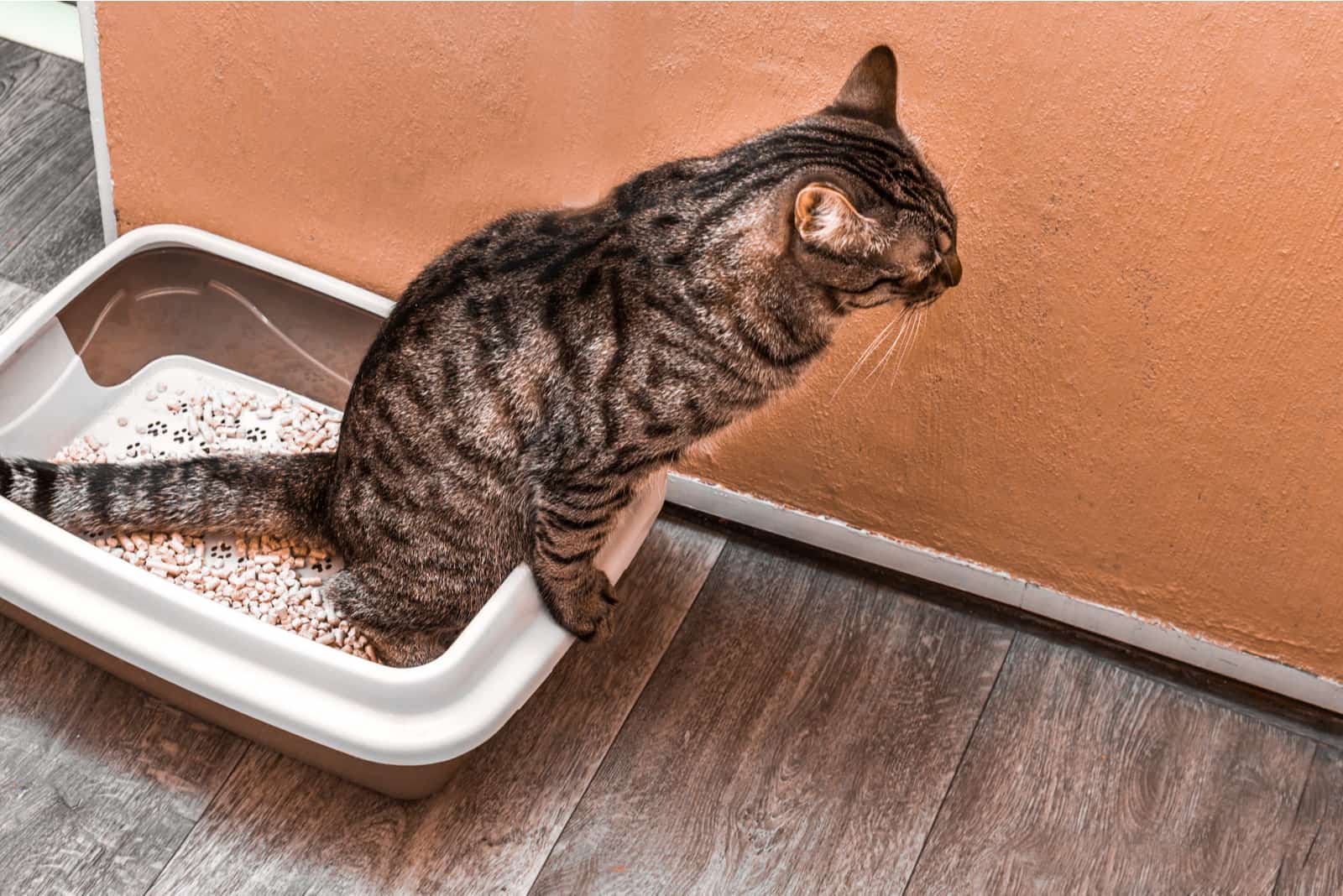
The most common health issue concerning a cat’s urinary tract is pandora syndrome, which isn’t usually associated with bacterial UTIs.
Pandora syndrome is an illness that causes inflammation and pain in a cat’s urethra and bladder. This syndrome is also referred to as FLUTD (Feline Lower Urinary Tract Disease) or FIC (Feline Idiopathic Cystitis).
The underlying causes for this condition are usually a combination of different factors, including bladder and/or hormone abnormalities, obesity, environmental stressors, a traumatic and stressful experience in the past, living in a multi-cat household, infections, urinary stones, and heavy collections of minerals clogging the urinary tract of cats, all of which can obstruct the normal flow of urine.
The most common symptoms of Pandora syndrome in cats include bladder inflammation, difficulty and pain when peeing, peeing more than usual, peeing outside of the litter box, and blood in the urine.
Cats that have pandora syndrome frequently have these symptoms.
Urinary Blockage
The second most common problem cats are dealing with when there’s blood present in their urine is a urethral blockage. When the urethra becomes clogged, the cat is unable to urinate.
Mucus, urinary stones, urinary crystals, and tumors are all potential causes of blockage. A blockage can form as a result of urethral spasms or edema caused by inflammation in the lower part of the urinary tract.
When this happens, it is difficult or impossible for a cat to urinate, resulting in a potentially life-threatening situation.
If your cat is experiencing difficulty urinating, you should take it to visit the vet right away. If the urethral blockage is not dealt with, it can cause kidney failure or even death within the first 24 to 48 hours.
This illness is more common in male cats, although it can also occur in female cats. This is because a male cat‘s urethra is significantly longer and narrower than that of females, making it more prone to obstructions.
The vet will assess which health issues are present in your cat and based on their diagnosis, you will be instructed on further treatment and at-home care.
The vet will physically examine your cat, consider their medical history, do bloodwork and/or urinalysis to check the cat’s urine sample, or perhaps even do x-rays.
You might want to read: Top 9 Natural Home Remedy Antibiotics For Cats: User Guide
Mouth Bleeding in Cats
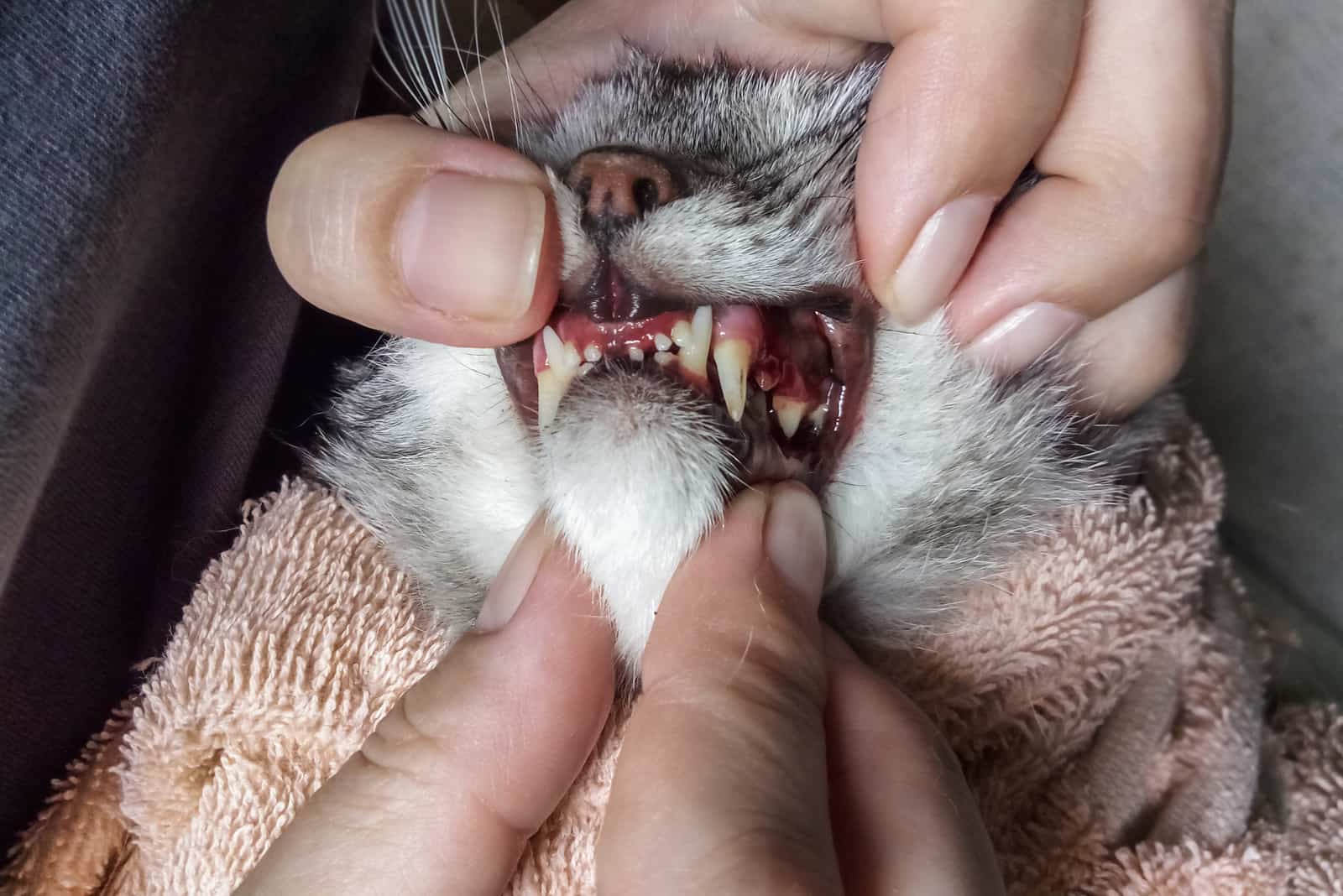
The most common cause of bleeding in feline mouths is damage to the tissue of the mouth, the teeth, or the tongue.
Bleeding can also suggest a foreign body stuck in the patient’s mouth, gum disease, various kinds of poisoning, and even internal organ rupture.
Bleeding from the mouth should always be checked out by a veterinarian. Because of injury to the cat’s teeth, tongue, or any part of the mouth, blood may leak out of the kitten’s mouth.
Bleeding can also be a sign of gum disease, internal organ rupture, or some form of food poisoning.
Congestive heart failure is another dangerous illness that can cause your cat’s lips to bleed. In any case, if you notice your cat is bleeding from their mouth, go and see a vet!
You may also want to see: Why Is My Cat Chewing On Nothing? 14 Reasons!
Blood From A Cat’s Ears
Perhaps your cat has some scabs on its ears, which may be visible on the outside of the ear.
These injuries are usually a consequence of cat fights. Fleas and/or parasite infestations can also cause bleeding inside the cat’s ears.
Some of the illnesses that can cause ear bleeding are severe, while others are benign. It also depends on where in the ear the bleeding is coming from, and the intensity of the bleeding.
Scabs on the outer area of the ear usually require little treatment; whereas underlying problems such as parasite infestation, internal bleeds, or tumors need an urgent check-up.
Nose Bleed
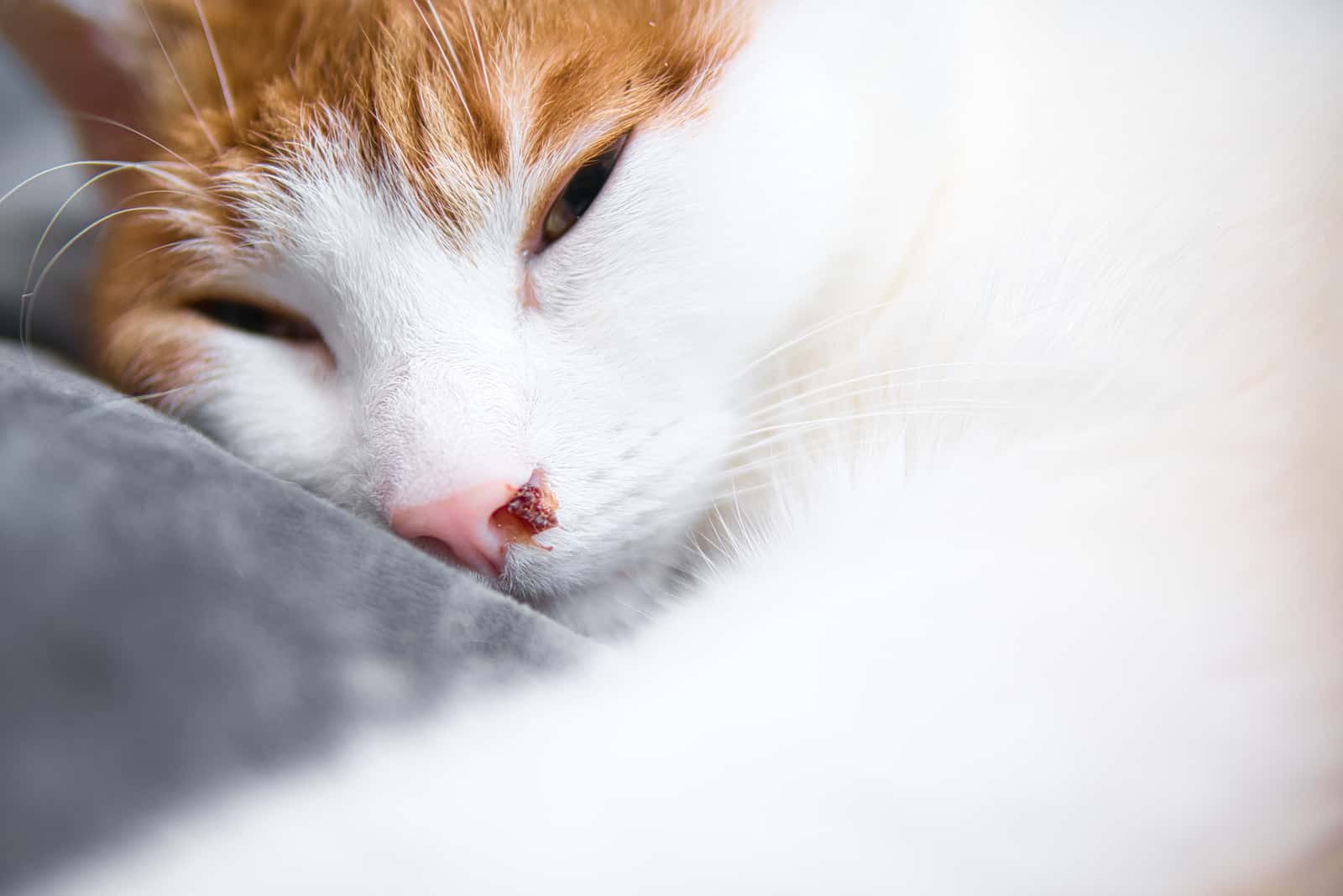
Cats, just like people, can get a nose bleed by dashing their nose into something.
If the bleeding doesn’t stop after about twenty minutes, or if it is continuous, it may indicate that your cat is suffering from a more serious ailment such as a foreign body being stuck in cat’s nose, a fungal infection, tooth abscesses, blood clots, nasal polyps, or even cancer.
It is very important that additional diagnostic tests are performed by a vet.
Another cause for your cat to bleed from the nose can be allergies. If you feel this might be the case, you should confine your cat indoors and away from allergens for a few days.
You can try and cool their nose with a wet cloth for example, as a cold compress will help their blood vessels contract and ease the bleeding.
Blood From Wounds
Cats are curious creatures who like wandering around and exploring. Cat fights and accidents can cause wounds and therefore bleeding.
Minor wounds can be treated at home, but severe injuries require a vet’s assistance. Be sure to treat any wounds as soon as you can, otherwise, infection and inflammation can set in.
Cats can sustain wounds on the outside because of many things, such as cat fights, jumps, and general mischief!
Although tiny contusions can be treated with first aid at home, wounds or cuts that are larger than an inch in diameter should be treated by the vet, and wounds of any diameter that display bleeding, inflammation, or a bad smell should be treated by the vet, as these are indicators of infection.
FAQ
Is blood in cat urine an emergency?
Yes. There are different reasons for your cat to have blood in its urine, however, you can’t be sure what is the cause of it, therefore consulting the vet is a must!
Cats not being able to urinate is a dangerous situation, which can become life-threatening very fast, so you need to seek help from your vet as soon as you notice blood drops in your cat’s urine.
What are the causes of blood in cat urine?
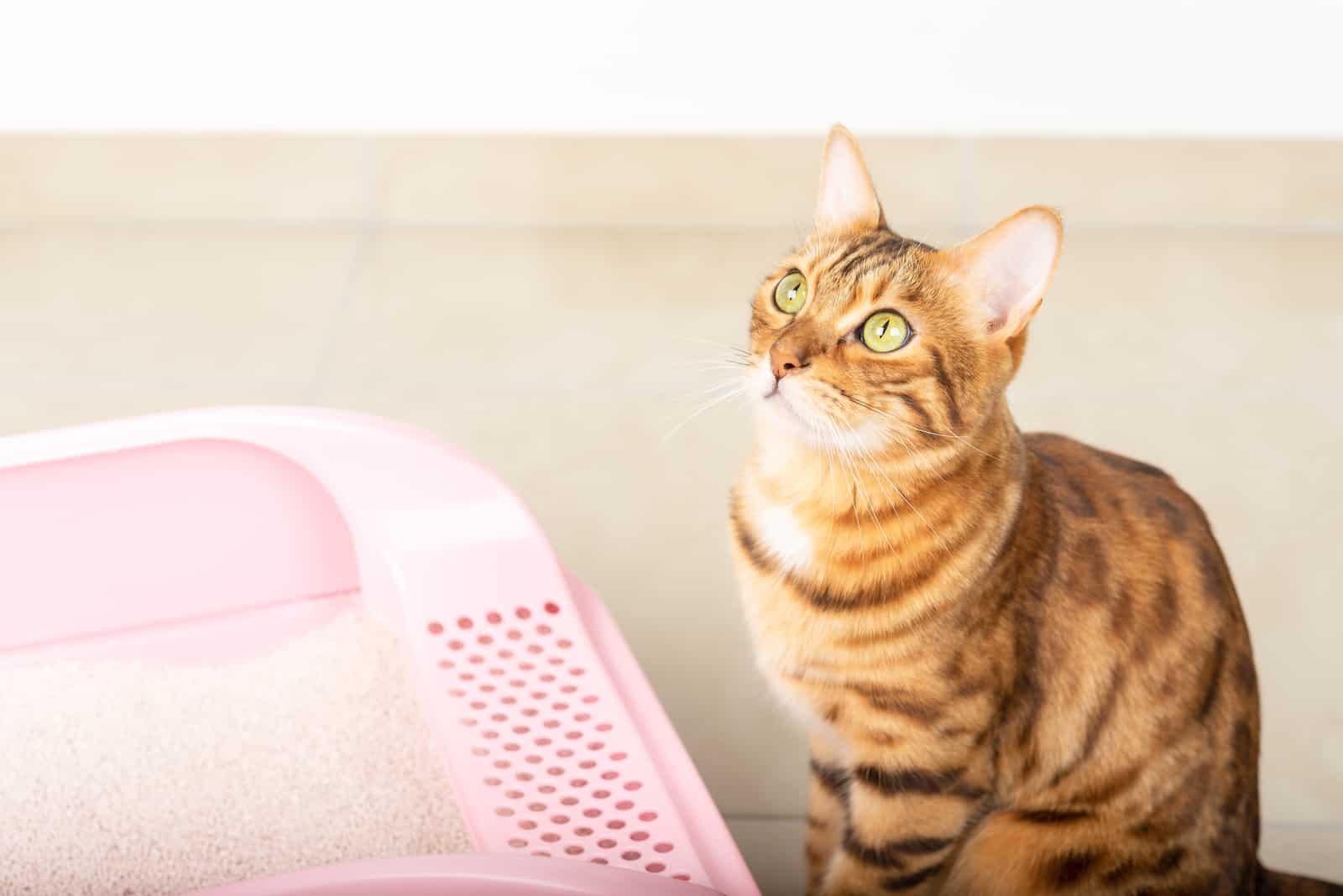
The most common causes of blood in a cat’s urine are feline lower urinary tract disease or urinary obstruction. Your vet will give you a diagnosis and prescribe a convenient treatment for your cat based on his investigations.
What should I do if my cat is bleeding from the nose?
You can try and cool their nose with a wet cloth as a cold compress helps their blood vessels contract and this may help stop the bleeding.
Cats, just like people, can get a nosebleed by bumping their nose on something. If the bleeding doesn’t stop after about twenty minutes, or if it is continual, this may indicate that your cat is suffering from a more serious ailment, and you will need to seek a vet’s assistance.
Final Words

Pet owners always put their pet’s health first. Seeing drops of blood will naturally worry you. There are a few different reasons for a cat leaving blood drops behind.
Your cat might have a wound or a scab that’s been picked at, or it might be bleeding from its nose, mouth, ears, or rectum or you might notice the blood in your cat’s stool or urine.
There are different causes or underlying illnesses that are associated with all of these different types of bleeding.
Sometimes the reason why your cat leaves blood drops around will be benign, but sometimes it can be a direct link to an underlying disease that can be quite harmful to your cat’s health.
Always pay attention to your cat‘s behavior and any changes concerning it, and provide your cat(s) with clean litter boxes, and enough litter boxes for each cat.
Pay attention to your cat’s water intake, especially during hotter days, and their diet. Keep your cats active and stress-free, and you’ll see how much that helps in the prevention of a lot of cat health issues!

